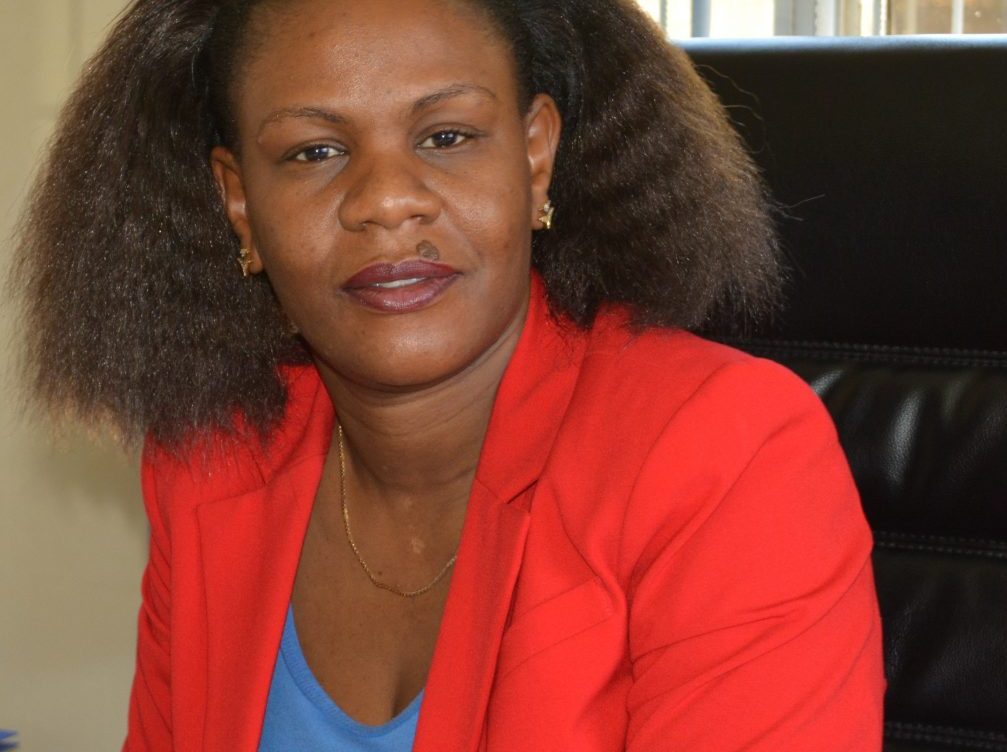
Addressing Gender Based Violence by Increasing Access to Justice for Women
By Lilian Saka Kiefer
As we celebrate 16 days of Activism Against Gender Based Violence (GBV), it is not possible not to reflect on access to justice for women and the challenges women face in accessing the legal justice system in their communities. Access to justice has been said to be both a preventive and mitigative strategy in addressing gender based violence.
GBV is a serious developmental challenge that must be addressed. The World Health Organisation (WHO) refers to GBV as an epidemic and a public health problem. Consequences of GBV are that women’s health is at risk, their dignity is undermined thereby limiting their participation in society and causing great human suffering. GBV is therefore a violation of human rights for those directly and indirectly affected. GBV denies women and girls an opportunity to fully enjoy their dignity, thereby undermining their ability to contribute positively to our socioeconomic development. If a study was conducted on the economic cost of GBV, we would all be shocked at how much the world loses by subjecting women and girls to GBV.
The Special Rapporteur on the Independence of Judges and Lawyers [in her report on women in the criminal justice system – as legal professionals, victims, witnesses or offenders] noted that: “Women are not intrinsically vulnerable: it is their particular individual situation, coupled with pervasive societal gender-based discrimination, that facilitates their being threatened and targeted by violence.”
A rights-based understanding of the illegality of gender-based violence against women is premised on the fact that women, like men/any other human being, have the right to life, to be free from torture and ill-treatment, to physical and mental integrity and to equality and non-discrimination in their day to day activities. The international human rights law obligates the state and government to ensure citizens’ protection from gender-based violence. This is done through the overarching principle that States must not only respect the human rights of persons – including through the conduct of their officials – but they must ensure protection from impairment of rights of persons under their jurisdiction by third parties, including private actors.
There are many ways of addressing GBV and one of them is the legal approach. For GBV survivors and/or potential victims to use the legal route to seek either redress or protection from GBV, there is need for much easier and facilitated better access to justice. In a broad sense, access to justice for women for acts of gender-based violence demands that the State must implement a range of measures including, where necessary, amending domestic law to ensure that acts of violence against women are properly defined as crimes and ensuring appropriate procedures for investigations, prosecutions and access to effective remedies and reparation.
Access to justice for individual women is often assumed to be a response to the perpetrator. However, there are other ideas of justice that can also be explored such as the ability to seek safety through effective protection orders; physical and mental recovery through good quality and accessible health services; and/or the opportunity to seek a divorce and a new life free from the violence of a spouse. Most often, traditional values limit the ability of women from accessing these forms of justice, and those who brave it suffer stigmatisation and victimisation for going against the norm.
In circumstances where the domestic law has weaknesses, women’s rights can be implemented through taking best practice recommendations from the international and regional instruments. Panos Institute Southern Africa (PSAf)’s experience has been that many women who are subjected to gender-based violence do not seek justice, frequently because they fear further violence and/or have no confidence in the justice system. Where women do seek justice, the use of international law, standards and jurisprudence can be an important tool in enhancing the responsiveness of domestic justice systems to the human rights infringements that women experience. This must involve promoting preventive methods as well as addressing violence when it has already occurred.
Successful responses to GBV require State Accountability, by ensuring that State agents such as the police and prosecutors effectively apply the laws that prevent and/or mitigate GBV. Stakeholders such as the police and the legal actors also require capacity and favourable environment to implement policies and procedures that increase access to services for women who have been subjected to violence and/or those at risk of violence such as safety and security, housing, medical care and social services.
When women can effectively access justice for gender-based violence through institutionalised mechanisms and effective implementation of favourable policies to eradicate gender inequality, a successful battle against GBV can be launched, and won. Until then, efforts will be made but won’t yield much.
The author is PSAf Executive Director. For feedback, email: lilian@panos.org.zm.